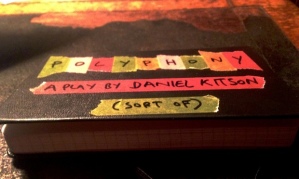In the decade since Billy Elliot hit gold, attempts to turn low-budget British films into stage shows have been plentiful, results have been mixed. Now, after shows have asked us to buy into people bursting into song and dance in car factories and on football pitches, here we have one that is set in and around, of all places, a theatre. So few sets required, the gorgeous Theatre Royal, Bath does the job perfectly and the fact that everything we see and hear feels as if it belongs naturally here gives this show a head start over all the rest. Tracie Bennett, bringing the ideal balance between refinement and coarseness, is the widowed Mrs Henderson, who buys the Windmill Theatre in London’s Soho in the late 1930s and hires Vivian Van Damm (Ian Bartholomew) to produce her shows. Faced with falling audiences, the pair concoct the idea of emulating the Moulin Rouge by featuring naked young ladies in their revues and Mrs H drops in on her friend the Lord Chamberlain to persuade him to give the green light. He does so with the stipulation that the ladies must adopt “artistic” poses and never move. The shows are a hit and, with the outbreak of war, the theatre adopts a “we never close” policy even through the Blitz and keeps up the spirits of the troops returning home on leave. The story is based on real events and many elements in it invite obvious comparisons with Gypsy, hardly a bad thing. That is not to say that the songs (lyrics Don Black, music George Fenton and Simon Chamberlain) are up to the Sondheim/Styne standard, but one hearing is not necessarily enough to make such a judgement definitive, because several of them sound pretty special. More importantly, the songs work perfectly within the context of the show. As the story moves effortlessly between broad comedy, pathos, romance and weighty drama, it is the songs that ease the transitions. Terry Johnson has adapted Martin Sherman’s screenplay and directs the production himself with enormous flair. In the opening scenes, there is so much visual comedy going on that it is difficult to take it all in, whilst several later scenes are so packed with emotion that the audience is awash with tears. Bartholomew’s rendition of Living in a Dream World, acknowledging his character’s Jewish heritage as the Nazis sweep across Europe, is heartbreaking and the young stage hand Eddie (Matthew Malthouse) fills the house with romance as he serenades tea lady Maureen (who goes on to star in the revues) with What a Waste of a Moon. Playing Maureen, Emma Williams gives us the “star is born” moment with an utterly captivating (and brave) performance, belting out If Mountains Were Easy to Climb, the big ballad most likely to take on a life outside the show. Mark Hadfield links scenes as the Windmill’s resident comic, churning out a string of dreadful blue jokes and making them funny. Enlivened by Andrew Wright’s bubbling choreography, Mrs Henderson Presents is a musical brim full with humour, emotion, patriotism and, yes, nudity. I doubt if anyone really knows what makes a hit musical, but, if this one doesn’t hit the heights, I’ll eat my……..well maybe not, but, if I’m right about it, at very least I’ll jump for joy.
Performance date: 27 August 2015










